Sponsors
Organizing Supporters: |
||
Organizing Associates: |
||
|
|
|
|
Media Sponsors: |
||
|
|
||
Media Supporters: |
||
|
Northern Cross
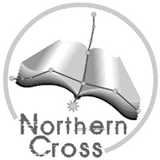 |
||
|
Russian-Speaking Community Council of Manhattan & the Bronx
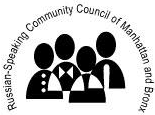 |
|
|

Organizing Supporters: |
||
Organizing Associates: |
||
|
|
|
|
Media Sponsors: |
||
|
|
||
Media Supporters: |
||
|
Northern Cross
 |
||
|
Russian-Speaking Community Council of Manhattan & the Bronx
 |
|
|
| Competition Program | ||
|
|
||
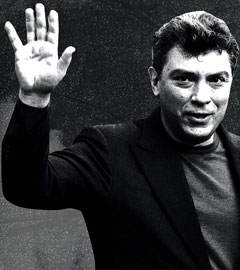 |
The Man Who Was Too Free
Directors: Vera Krichevskaya and Mikhail Fishman The life of Boris Nemtsov is intertwined with Russian history of the past 25 years. The film begins in the 1990s, when Nemtsov was seen as a possible future president of the country, and ends in February 2015 with his assassination. The most important events of Russian society from 1990 to 2015 and Nemtsov’s role in this socially and politically active time period are discussed by his friends and leading Russian politicians. Q&A with film-directors. Awards: “White Elephant” from the Russian Guild of Film Critics in the category of “Best Documentary Film of 2016”. |
|
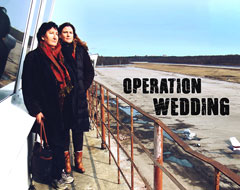 |
Operation Wedding
Director: Anat Zalmanson-Kuznetsov Leningrad, 1970. A group of young Jewish dissidents plots to hijack an empty plane and escape the USSR. Caught by the KGB a few steps from boarding, they were sentenced to years in the GULAG and two were then sentenced to death. 45 years later, filmmaker Anat Zalmanson-Kuznetsov reveals the compelling story of her parents, leaders of the group, “heroes” in the West but “terrorists” in the Soviet Union, even in Russia today. Awards: Award of Recognition at the Hollywood International Independent Documentary festival (2016), the Audience Choice Award at DocuTIFF (Israel, 2017), the Gold Movie Awards (London, 2017), the GLOBE AWARD at Around Film Festival (Berlin, 2017). |
|
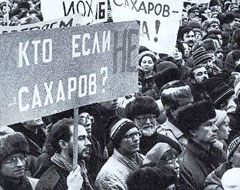 |
Quarter of the Century
Director: Alexander Guryanov The year 1989 stood out in the minds of Soviet citizens as a year when their spirits were rising with special expectations. Everybody followed the events at the Congress of the People’s Deputies. At the time, thousands wrote letters to People’s Deputy of the Soviet Congress – academic Andrey Sakharov. But what do these people think about the epoch of the 1990s today? How do they evaluate the last 25 years? Choosing the heroes for the documentary, the filmmakers were trying to interview people of different occupations and interests, different ages and viewpoints. The result was rather unexpected in many ways. |
|
|
|
||
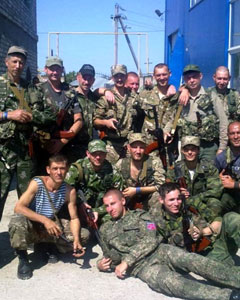 |
I was Bitten by a Shark
Director: Maksim Kobzev This documentary is about the most contradictory international conflict in contemporary Eastern Europe — the war-conflict between Ukraine and Russia. The main character of the documentary, Russian mercenary soldier, a so-called “volunteer,” tells his story of life and war. The filmmakers create a very incongruous psychological portrait of a modern Man of War. Awards: Grand Prix at IFF ArtDocFest, Russia (2016), Grand Prix at IFF “Stalker,” Russia (2016), Human Rights Film Festival in Barcelona, Spain (2017) |
|
|
|
||
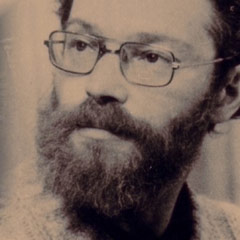 |
The Success of a Hopeless Affair
Director: Irina Vasiliev This documentary is about Grigory Pomerants, the most famous Russian philosopher under the Soviet Era. As a young man, he was arrested and imprisoned for anti-Soviet activity in 1949. He spent four years in the GULAG, and was rehabilitated during the period of Khrushchev’s uncovering of Stalin’s crimes and the Cult of Personality in 1956. During the mid-60s, Pomerants’ philosophical and literary essays were published in Samizdat. His name was stricken from official Soviet life but his books were published in Germany, France, and the USA. He became an author of all leading uncensored Russian press abroad. He did not become an active dissident, but turned into a theorist of the dissident movement, and declared this movement as an Exodus from Impersonality. |
|
|
|
||
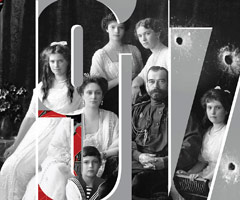 |
A Hellish Chaos
Director: Sergey Debizhev 2017 marks the centennial of the Russian Revolution and a century of the Russian Catastrophe. Without objective judgement of this time period we cannot understand the contemporary world and its main conflicts. The film-team based their documentary on the works by historian Elisabeth Heresch, her book Geheimakte Parvus. Die gekaufte Revolution. The premiere of this provocative documentary at the Moscow International Film Festival in summer 2017 riveted Russian intellectual circles, uncovering main confrontations within society. |
|
|
|
||
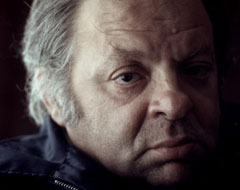 |
Time was Given
Director: Pavel Mirzoev This documentary is dedicated to the 90th anniversary of the famous Russian poet Naum Korzhavin. The life and fate of the country, his poems and memoirs, his feelings of pure truth and humanity, even his strong character – everything was linked to the epoch. As a student he was sentenced to prison to the GULAG for his verses in Stalin’s Soviet Union; he was one of the most popular poets published in Samizdat. He immigrated to the U.S. in the 1970s, and became the “voice of honor” for the Russian-speaking multi-ethnic Diaspora. Awards: Grand Prix at the International Film festival in Gatchina in 2016. |
|
|
|
||
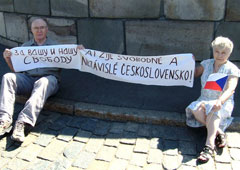 |
Natalia Gorbanevskaya: I am not a Hero
Directors: Kirill Sakharnov, Ksenia Sakharnova On August 25, 1968, the Russian poet Natalia Gorbanevskaya’s actions changed her life: carrying her three-month-old son, she, with seven like-minded people, protested against the Soviet-led intervention of Czechoslovakia at the Red Square in Moscow. The cost of this action was years of imprisonment. Later, she emigrated from the Soviet Union. Gorbanevskaya – the legend of the dissident movement – was often called a “hero”. However, she has said: “I’m not a hero; I’m just an ordinary person.” The film-team has been interviewing their character for several years for this documentary. As a result they have created a real portrait of Natalia Gorbanevskaya — a Poet, and a Citizen. |
|
|
|
||
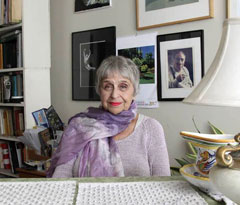 |
Picture to Remember
Director: Edward Staroselsky The film is about the life of the theater, and about ballet critic and photographer Nina Alovert. Her life closely intertwined with the tragic period of Stalin’s repression, the Khrushchev Thaw, as well as theatrical and ballet flourishing in the Soviet Union and the U.S. |
|
|
|
||
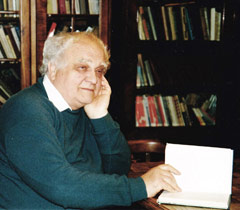 |
“Between the Lines God Passes the Night”
Director: Yelena Yakovich The documentary tells about world-known Russia-born American linguist Professor Vyacheslav V. Ivanov. The famous slavist recalls his childhood that he spent among the most distinguished Soviet writers, scientists, artists, and actors: M. Bakhtin, B. Pasternak, V. Shalamov, J. Brodsky, A. Solzhenitsyn, A. Sakharov, and others. His story is about free man in the imprisoned country. His thoughts are about the future of Russia: «Unfortunately, Russia repeats its mistakes, falls down in the traps from the past». |
|
|
|
||
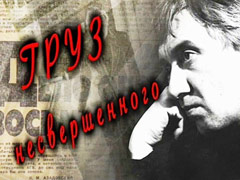 |
Life in Word and Deed
Director: Directors: Eugenia Golovnya, Julia Mavrina The documentary looks at the life and work of investigative journalist Yury Shchekochikhin, a Duma representative in the Perestroika period. An outspoken champion of democracy, free expression, and the rule of law during Perestroika and in post-Soviet Russia, Yury was famous for his probing investigative reporting on corruption, the KGB, human rights’ violations, international organized crime, and the war in Chechnya. Yury died in 2003, under unclear circumstances, in the middle of a major investigation of corruption at the top levels of the Russian law enforcement and intelligence services. The film presents the voices of Yury’s Russian, Ukrainian and Georgian colleagues, all participants in the dramatic political and social events that transformed post-Soviet societies. Q&A with Nadezhda Azhgikhina, Vice-President of the European Federation of Journalists, widow of Yury Shchekochikhin. |
|
|
|
||
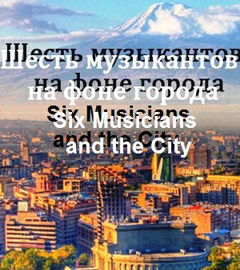 |
Six musicians and the city
Director: Tatiana Daniliyants Between the East and West, strong traditions and today’s innovations, the nostalgic melodies of duduk and the beat of modern jazz, is Yerevan, the capital of Armenia. Six musicians, six styles, six personal stories behind one of the most musical cities in the former Soviet Union. At the end of the 20th century after the collapse of the Soviet Union, Yerevan survived wars, the blockade, a period of “darkness and hunger” and almost total isolation. Now it is changing dramatically, searching for its own identity, its path of development and its place in the world in the new millennium. The six participants of this film, including Grammy and World Music Award Laureate Arto Tuncboyaciyan and world famous “duduk-voice” Jivan Gasparyan, are the “genius loci” of Yerevan. The film captures Tatiana Daniliyants’ ten years of research and an attentive eye for these musicians’ own stories and their extraordinary music. |
|
|
|
||
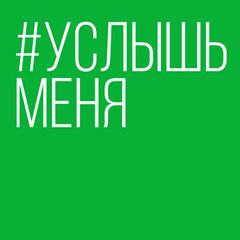 |
Hear Me
Directors: Olga Arlauskas, Svetlana Gorlo About 13 million Russians have a hearing impairment. 250,000 of them live in full or partial silence. These people dream, work, fall in love, and want to be active members of society. They want to be respected by the hearing community and respect it in return; they want to be understood. The film tells the stories of people with hearing impairments from all walks of life. |
|
|
|
||
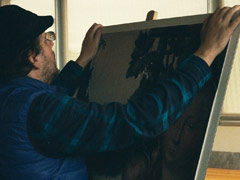 |
Imagine
Directors: Catherina Gordeeva and Nikolay Kovalkov For someone who has not experienced problems with eyesight it may seem that there is no fine art in the world of the blind. The first art exhibition for blind people “To See Invisible” took place in Russian in fall 2016. «Imagine» – is a film-essay or film-adventure beyond the borders of existence of which most of us are even not aware. A blind art expert, a fine art lover who lost her eyesight after giving birth, and an artist blind since childhood… Our film characters are people in love with art who are seeking the opportunity to reestablish the connection with the visual culture cut off by coincidence. |
|
|
|
||
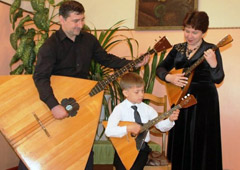 |
…And Only Three Strings
Director: Sergei Golovetsky This documentary is about the balalaika –a unique Russian fstringed folk musical instrument; about its past and present; about the people who make the balalaika in present day as well as modern musicians who have devoted their life and talent to this instrument. The film presents clips from the concerts of the best balalaika-players. |
|
|
|
||
 |
Should the Clover Rustle in the Meadow… Yevgeny Yevtushenko
Director: Nina Zaretskaya This documentary is dedicated to one of the most influential modern-day Russian poets, Yevgeny Yevtushenko, who passed away this year in Tulsa, Oklahoma. He was one of the few poets politically active during the Khrushchev Thaw in the 1960s; he was the author of the poem Babiy Yar, the first public avowals regarding the Nazi massacre of the Jewish population in Kiev in 1941; he was the author of popular Russian songs and intellectual books… Shot in the Yevtushenko Museum-Gallery in Peredelkino, suburb of Moscow, to the 80th anniversary of the poet, this film takes the form of a monologue in which the poet ponders the most important questions: what is life? and what is death? |
|
|
|
||
| Non-Competition Program | ||
|
|
||
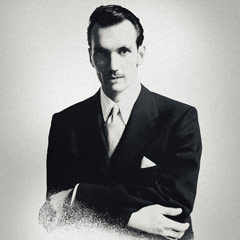 |
Karski and the Lords of Humanity
Director: Slawomir Grünberg The film tells the story of Jan Karski, a Polish underground courier. Karski traveled across occupied Europe to inform the Allied powers of Nazi crimes against the Jews of Europe in an effort to prevent the Holocaust. He carried his dreadful eye-witness report to Britain and the United States, hoping that it would shake the conscience of the powerful leaders or, as he would call them, the Lords of Humanity. Q&A with film-director. Awards: The Lavr Award (Russia, 2016), Grand Prix at International Historical & Military Film Festival (Warsaw, Poland.2016), the Best Polish documentary / “Jewish Motives” at International Film Festival (Warsaw, Poland.2015) |
|
|
|
||
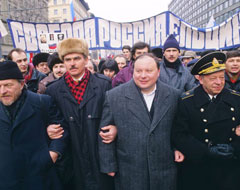 |
A Long View
Director: Dmirty Iosifov This documentary tells about Yegor Gaidar’s family – who played an important role during the Soviet and Post-Soviet era in Russia. Ariadna Bazhov-Gaidar, a narrator of the film, tells her story about her father –Pavel Bazhov, a popular Ural story-teller, about her husband – Timur Gaidar, a son of a famous Soviet writer, and about her grandson – Yegor Gaidar, a Soviet and Russian economist, politician, the Acting Prime Minister of Post-Soviet Russia in 1992, and the author of the main socio-economic reform called Perestroyka. Awards: Special Diploma “For the Best Choice of Narrator Reflecting the Historical Epoch” at IFF in Gatchina. |
|
|
|
||
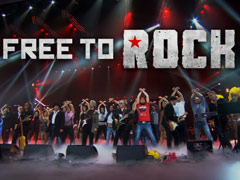 |
Free to Rock
Director: Jim Brown The documentary is directed by 4-time Emmy winning filmmaker Jim Brown and narrated by Kiefer Sutherland. The film spreads the rock and roll sound of freedom across the Iron Curtain and throughout Eastern Europe and the USSR, despite Communist attempts to outlaw it and to crush what they perceived was a contamination of the youth. Over the next thirty years, thousands of underground bands and millions of young fans who yearned for Western values helped fuel the nonviolent implosion of the Soviet regime. Presidents, diplomats, spies, and rock stars from the West, the Soviet Union, and Eastern Europe were interviewed on the subject of rock and roll as a factor of freedom, including: Presidents Mikhail Gorbachev, Jimmy Carter, and Vaira Vike-Freiberg of Latvia, NATO Deputy Secretary General Alexander Vershbow, former KGB General Oleg Kalugin, Hungarian Ambassador Andras Simonyi, Latvian Ambassador Ojars Kalnins, and more. The film includes performances by Elvis Presley, the Beach Boys, the Beatles, Dean Reed, Nitty Gritty Dirt Band, Elton John, Billy Joel, Bruce Springsteen, Scorpions, Roger Waters; The Wall in Berlin Concert with Cyndi Lauper, and Metallica, as well as Russians Stas Namin and The Flowers, Andrey Makarevich and Time Machine, Boris Grebenshikov and Aquarium, Viktor Tsoi and KINO, Yuri Shevchuk and DDT, and others. |
|
|
|
||
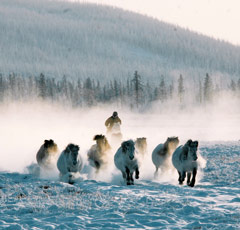 |
24 Snow
Director: Mikhail Barynin Like a lone cowboy, Sergei passionately devotes his life to traditional horse breeding in the impenetrable Arctic Sakha; permafrost and the absence of roads, electricity, and channels of communication mean that there is nobody else to rely on but oneself. Sergei is sensitive and introspective; he truly cares about his family, community and treats nature with the utmost respect. He loves the independence and freedom this life brings, despite the immense sacrifices that it necessitates, such as total isolation and being a stranger to his own children. Spectacular camerawork characterizes the Sakha horses in all their magnificence, and juxtaposes the post-soviet towns and the boundless taiga landscapes, where the cold bites through the screen. |
|
|
|
||
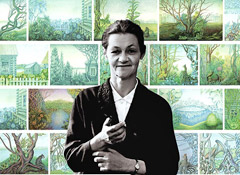 |
In Search of a Lost Paradise
Director: Evgeniy Tsymbal This film tells the story of artists Valentina Kropivnitskaya and Oskar Rabin, two people who created nonconformist art – The Second Russian Avant-garde. Their Bulldozer Exhibition was an unofficial presentation of non-conformist art in 1974 that was forcefully broken-up by Soviet police. Later Valentina and Oskar immigrated to France and became a part of the modern French artistic circle. This film is a story about great talent and great love, about life in a totalitarian regime and about the fight for artistic freedom. Awards: NIKA for the “Best Documentary FIlm” (2015), IFF on Human Rights “Stalker” – the “Best Non Feather Movie”, Berlin Independent Film Festival – “Best Documentary” (2015). |
|
|
|
||
10th RusDocFilmFest-3W program:
Friday October 20
DCTV (87 Lafayette, Manhattan, NY)
Main Theater (1st floor)
7:00 –11:00 buy tickets
— Opening event
— Screening: The Man Who Was Too Free (Russia). Q&A with film directors
Exhibition opening:
— Exhibition “Russian Émigré-Artists in the USA. 1950-2017”
— Exhibition “Photographer Nina Alovert: Picture to Remember”
Saturday, October 21
DCTV (87 Lafayette, Manhattan, NY)
Main Theater (1st floor)
2:00 buy tickets
— A Long View (Russia)
— Quarter of the Century (Russia)
4:00 buy tickets
— Six Musicians and the City (Armenia / Russia)
5:20 buy tickets
— The Success of a Hopeless Affair (Russia)
— Life in Word and Deed (Russia)
7:20 buy tickets
— Operation Wedding (Israel, Latvia)
DCTV (87 Lafayette, Manhattan, NY)
Engine Bay Hall (1st floor)
4:00
— Round table “From America with Love. American Slavists and the Russian Perestroika” (organized by The New Review with the Harriman Institute, Columbia University)
8:30
— New book by Aldanov Award laureates: “World Citizen.” Presentation dedicated to the 10th anniversary of the Literary Award named after Mark Aldanov (The New Review Publishing)
— Poetry reading “Hudson Note. Russian-American Poets in New York”
— Reception
DCTV (87 Lafayette, Manhattan, NY)
Studio (3rd floor)
3:00 buy tickets
— A Hellish Chaos (Russia)
5:00 buy tickets
— 24 Snow (Russia)
Exhibitions:
— “Russian Émigré-Artists in the USA. 1950-2017”
— Photographer Nina Alovert: “Picture to Remember”
— “LenDoc: 85 Years on the Screen”
School of Visual Arts (136 West 21 Street, Manhattan, NY)
2:00 buy tickets
—Between the Lines God Passes the Night (Russia)
2:50 buy tickets
— Natalia Gorbanevskaya: I am not a Hero (Russia)
3:50 buy tickets
— Time was Given (Russia)
Sunday, October 22
DCTV (87 Lafayette, Manhattan, NY)
Main Theater (1st floor)
2:00 buy tickets
— I was Bitten by a Shark (Russia)
3:10 buy tickets
— Karski and the Lords of Humanity (Poland)
4:45 buy tickets
— Free to Rock (USA)
6:10 buy tickets
— Picture to Remember (USA)
DCTV (87 Lafayette, Manhattan, NY)
Studio (3rd floor)
2:00 buy tickets
— Hear Me (Russia)
— Imagine (Russia)
DCTV (87 Lafayette, Manhattan, NY)
Auditorium (1st floor)
2:00
— Round Table on modern documentary: new forms, new genres, new reality.
DCTV (87 Lafayette, Manhattan, NY)
Main Theater (1st floor)
7:30 buy tickets
— Closing Event of the 10th RusDocFilmFest-3W Reception
Festival screenings at the theaters of New York State:
NEW RUSSIA CULTURAL CENTER in Albany (1550 Broadway Rensselaer, NY 12144)
— In Search of a Lost Paradise (Russia)
—
– Evgeny Yevtushenko: Should the Clover Rustle in the Meadow… (USA)
ARAA “OTRADA”, A CHARITABLE, CULTURAL, AND EDUCATIONAL SOCIETY OF RUSSIAN-AMERICANS (385 S Pascack Rd, Spring Valley, NY)
— …And Only Three Strings (Sweden)
Also, as part of the Festival program:
Sunday, October 15
Synod ROCOR (75 East 93rd Street, Manhattan, NY)
2:00
— Round Table “100 years of Revolution – 100 years of Russian Emigration. Lessons of History”. As part of the celebration of the 75th anniversary of The New Review
Thursday, October 19
National Writers Union (113 University Pl #602, Manhattan, NY)
— Lecture on current issues in modern Russia: “Unpredictable Faces of Russia: Pro et Contra”
— Presenting Festival guests: Dina Sorokina, Yeltsin Center (Russia), Vera Krichevskaya and Mikhail Fishman, Russian film directors.
RULES AND REGULATIONS OF THE ANNUAL INDEPENDENT RUSSIAN DOCUMENTARY FILM FESTIVAL IN NEW YORK RUSDOCFILMFEST-3W
1. GENERAL PROVISIONS
The annual international independent Russian documentary film festival in New York RusDocFilmFest-3W was created by The New Review Inc. in 2007, with the goal of supporting Russian-language documentary cinema and furthering the creative ties among the world film community. The unofficial slogan of the RusDocFilmFest-3W is “What a Wonderful World” and “Free World.”
The festival is held annually by The New Review Inc. in New York. The festival is a non-profit interactive platform for promoting open creative and artistic dialogue among professional documentary filmmakers.
Since 2016, the festival’s General Sponsor is the Zimin Foundation.
The festival is also made possible with support from private American sponsors and The New Review Corporation.
The festival has an international In-Competition Program. The festival accepts submissions of any films that have won awards at international and national film festivals, made in any country, that reflect themes relevant to the Russian-language Diaspora all over the world, as well as Russia, its past and present, and topics of modern inter-cultural dialogue working in the aesthetics of various schools of documentary filmmaking. Each year, the festival accepts submissions of films released in the festival’s current year, or the year prior.
The festival also has an Non-Competition Program that includes award-winning films released in the two years prior to the festival’s current year.
Winners of RusDocFilmFest-3W are determined by a Jury composed of well-known cultural personae from the USA.
The following programs are included in the Festival:
− “Free World” – a program of socially relevant documentary films
− “In the Beginning was the Word” – program of documentary films that reflect the themes of Russian culture and literature on the screen
− “Remembering the Holocaust in the 21st Century” documentary program
− “At the Crossroads” – student film program
− Master classes, discussion sessions, Q&A sessions with the films’ creators and participants
II. FESTIVAL AWARDS
− Grand Prix – awarded to the best film of the current year. A bronze statue on a wooden base. The statue is modeled on a drawing by Ernst Neizvestny, donated by the artist in 2014 as the official Festival logo. The statue was made in 2017 by American sculptor Jeff Bliumis.
− Special Jury Prize. Crystal stella with the Festival’s logo (designed by NY designer Alex Soldier)
− Faces of Russia. “Glass in sand” figure, created by American artist Adrien Miller.
− Special diplomas and awards from the Jury, Festival organizers, Festival partners and sponsors.
III. SUBMITTING TO THE FESTIVAL
Films may be submitted to the Festival from April 1 until June 30 (must arrive by deadline), along with the Application form. Further details and the Application form are available on the Festival’s site – www.rusdocfilmfest.org
Decisions on the festival program selection are made by the Organizing committee (curated by Marina Adamovitch)
Selection procedure:
The films are selected by the Organizing Committee, headed by the Festival Curator (Moscow and New York groups). Films may be submitted after April 1st and must arrive to the Festival organizers by June 30th of the current Festival year. The Committee will inform the film’s creators about their film being selected by contacting the director, producer or distributor of the film after July 5th of the current year.
If your film has been selected, the following additional information will be required by July 25th of the current year:
− Two full-color film stills (no less than 300 dpi)
− Director’s photo (no less than 300 dpi)
− Film trailer, for festival advertising purposes (HD; DVD / file mp4, up to 2 minutes)
− A short film annotation in Russian and English
− Articles and other relevant media coverage of the film (links and texts in Word format)
After a film has been selected for participation in the Festival, the Festival has the right to:
− Use the film’s trailer to advertise the film and the festival
− Use articles and other media coverage of the film for advertising purposes of the film and the Festival
− Retain a DVD copy of the film for the Festival’s archives
The Festival doesn’t pay copyright owners for the right to show their film at the festival or for use of their film for non-commercial purposes for educational purposes. The Festival retains the right to show the winning films one time during the next calendar year and prior to the next Festival (Program “Festival Echo”).
The deadlines and rules for submitting to the student competition program “At the Crossroads” are the same.
IV. FILM COPY DELIVERY
The Festival prefers that film copies be delivered to their address in the US. See our website for details.
Submission deadline: If the Festival Organizing Committee does not receive 2 copies of a participating film and other supporting materials by July 25th of the current Festival year, the Festival retains the right to remove the film from that year’s program.
The cost of film copy delivery to the Festival is covered by the applicant submitting the film.
V. INVITATION TO THE FESTIVAL
If requested by a Festival’s participant, the Festival’s Organizing Committee will send out an official visa invitation, in English, so that the participant may apply for a US visa for the duration of the Festival. The Festival’s Organizing Committee does NOT provide any other visa support.
The Festival’s Organizing Committee does NOT give out travel grants (does not cover travel and living expenses) for participants.
VI. ACCREDITATION
Free guest accreditation is provided for Festival’s participants (film crews that are presenting their films at the Festival and persons featured in the films).
Free “Press” accreditation is provided only to those mass media representatives who cover the work of the Festival during the course of the Festival. To get accredited as press, please write to the Festival’s Organizing Committee by October 1 of the current Festival year, at rusdocfilmfest@gmail.com
The festival does not cover travel and living expenses for accredited persons.
Festival’s Organizing Committee address:
The New Review Inc.
Attn: RusDocFilmFest -3W
611 Broadway, Suite 902
New York, NY 10012 USA
Email: rusdocfilmfest@gmail.com
The festival is organized by The New Review, Inc.: newreview@msn.com
Email of organizing committee: rusdocfilmfest@gmail.com
Phone of the organizer The New Review, Inc.: (212) 353-1478
– Festival’s Facebook page
– Festival on Twitter
– Festival’s YouTube channel
October 23, 2017
The Tenth independent documentary film festival RUSDOCFILMFEST-3W has come to a close. 21 documentaries have been screened over the course of three days, among them – 16 American premieres from 6 countries. 17 films were screened in the Competition program. 9 film directors from Armenia, Poland, Russia and the U.S. took part in the festival. Among the festival’s guests were American film director Jon Alpert, sixteen Emmy Awards laureate and two-time Academy Award nominee; American film director Kieko Tsuno, Emmy Award laureate; Steven Cymbrowitz, New York State Assemblyman; Paul Litvinov, a famous Soviet dissident; Nina Alovert, well-known photographer; Serge Hollerbach, an academician of the National Academy of Design, and others.
The festival was welcomed by the City and the State administration. The Mayor of New York City Mr. Bill de Blassio sent his Greeting Address to the festival. The New Review Corporation was given a Diploma by the New York State Assembly. The festival was welcomed by all major public organizations of the Russian-speaking Diaspora, among them – one of the oldest organizations, the Pushkin Society in the U.S. The Pushkin Dom from Russia also welcomed The New Review.
The festival took place at two venues in Manhattan and two venues in New York State.
The 10th anniversary of the RUSDOCFILMFEST-3W coincided with the celebration of the 75th jubilee of The New Review, the organizer of the festival project. Several art exhibitions were shown during the festival’s days, including the “Russian-American Painters” presented by the Kolodzei Art Foundation and a photo exhibition of Nina Alovert’s works. The New Review also organized three roundtables: “100 Years of the Revolution – 100 Years of the Russian Exodus”, “From America with Love. American Slavists and the Russian Perestroika”, and “Nonfiction: New Forms, New Genres, New Reality” as well as the presentation “Unpredictable Faces of Russia: Pro et Contra” in cooperation with the National Writers Union and the poetry readings by Russian-American New Yorkers.
The general sponsor of the 10th RUSDOCFILMFEST-3W is the Zimin Foundation.
Though the 2000s are often called The Post-Truth Era, the non-fiction films presented at the 10th RUSDOCFILMFEST-3W demonstrated an accurate representation of the major socio-political problems of the modern world. The main accent of the festival program pointed to some of the most important conflicts of current society: human rights, freedom of speech, writers’ independence from censorship, and remembering the Holocaust in the 21st century.
This year festival jury included:
– Lucy Kostelanetz, film director, former president of the Flaherty Seminar;
– Helga Landauer, film director and poet;
– Vitaly Komar, artist, co-founder of the Sots-Art;
– Jeff Bliumis, sculptor;
– Alla Roylance, librarian and program curator, Brooklyn Central Library;
This year the Grand Prix and the Faces of Russia Award were newly designed and presented by sculptor Jeff Bliumis and designer Alex Soldier.
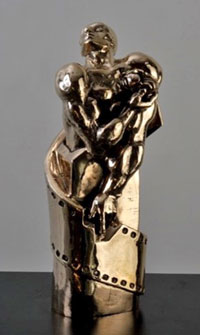
Winners and Nominees of the 10th RUSDOCFILMFEST-3W:
– Grand Prix – The Man Who Was Too Free, directed by Vera Krichevskaya and Mikhail Fishman (Russia)
– Special Jury Prize – I Was Bitten by a Shark, directed by Maksim Kobzev (Russia)
– “Faces of Russia” – Natalia Gorbanevskaya. I am not a Hero, directed by Ksenia Sakharnova and Cyrill Sakharnov (Russia)
Jury Diplomas:
– In the “Best Cinematography” nomination category – Six Musicians and the City, directed by Tatyana Danilyants (Armenia – Russia)
– In the “Best Original Screenplay” nomination category – Naum Korzhavin. Time was Given, directed by Pavel Mirzoev (Russia)
– In the The Best Visual Effects nomination category – «Free to Rock», directed by Jim Brown, produced by Douglas Yeager (USA)
Diplomas of The New Review Corporation:
– In the “Russian Literature on the Screen” nomination category – Should the Clover Rustle in the Meadow… Yevgeny Yevtushenko, directed by Nina Zaretskaya (USA-Russia)
– In the “Russian History on the Screen” nomination category – A Quarter of a Century, directed by Alexander Guryanov (Russia)
– In the “Free Word” nomination category – Life in Word and Deed, directed by Eugenia Golovnya and Julia Mavrina (Russia)
– In the “Free World” nomination category – «Free to Rock», directed by Jim Brown, produced by Douglas Yeager (USA). Diploma and the Crystal Globe Award
– In the Genius Loci nomination category – Picture to Remember, directed by Edward Staroselsky (USA)
– In the “Remembering the Holocaust in the XXI Century” диплом и награда, – фильм Karski and the Lords of Humanity, directed by Slawomir Grünberg (Poland). Diploma and the Bronze Statue
– The Humanitarian Award for the invaluable contribution to the protection of the rights of people with disabilities – Olga Arlauskas (Russia). Diploma and the Crystal Angel Award
– In the special nomination category “For the Creative Contribution to the Promotion of Russian Culture in the U.S.” – film director Elena Yakovich (Russia)
– In the special nomination category “For the Contribution to International Cooperation in Nonfiction Cinema” – Open Studio LenDoc (Russia) in the year of its 85th anniversary. Diploma and the Crystal Globe
– Diploma and Award of the Pushkin Society in the U.S. was awarded to the film Naum Korzhavin. Time Was Given, directed by Pavel Mirzoev (Russia)
Photos from the Opening Reception:
Photo: Anna Golitsyna
“HUDSON NOTE” reading:
Photo: Anna Golitsyna
Round table discussion “American Slavists and the Russian Perestroika”
organized by The New Review in co-partnership with the Harriman Institute, Columbia University. Photo: Anna Golitsyna
2019
2018
2017
2016
2015
2014
2013